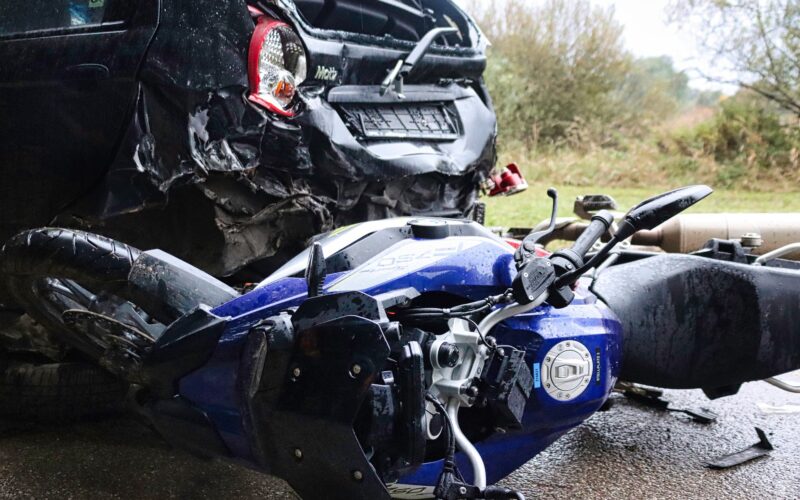Picture this: you are riding your motorcycle and suddenly crash because of negligence on your part and another road user. How will you handle this situation?
Proving fault in a motorcycle accident is not as easy as it may sound. One major reason is the insurance firms. The role of insurance is to make profits. Thus, it is its mission to try to minimize payouts. They try to shift the blame and make it look like you are fully responsible for the accident.
In this article, we will answer your questions regarding shared faults in motorcycle accidents. Let us get into it.
How is Liability Shared?
Shared fault means the two parties (the claimant and defendant) contributed to the accident’s occurrence through their acts or omissions. Shared fault can either fall under contributory negligence or comparative negligence.
Some states follow comparative negligence laws. This means you can still be awarded damages despite being a part of the motorcycle accident. So, let us say the victim’s fault in the accident amounted to 45%. They will receive 55% of the total damages.
Contributory negligence is followed in some states. According to this rule, the plaintiff cannot file a claim, even if they are 1% responsible for the accident.
Who Can Prove the Liability Percentage of Each Party?
During a motorcycle accident, it can be challenging to prove the parties’ fault percentage in shared liability cases. The two parties involved in the accident may have different opinions on who is to blame for the accident. So, who else can prove liability?
- The main parties to the accident (the claimant and the defendant)
- Insurance adjusters
- Lawyers
- Investigators
- Police officers
- The court or jury
How Can You Prove the Percentage of Fault?
Below are two different ways of proving the fault percentage.
Evidence Collection
After the accident, please ensure that you gather the necessary evidence. This can either be:
- Testimonial – witness statements.
- Physical evidence – gathered from the scene of the accident. You can even take pictures of them.
But how do you collect the evidence? The best practices for gathering proof include:
- Getting in touch with the police
- Keeping a journal of what happened
- Speaking with witnesses
- Recording damages and injuries
- Getting medical help
- Keeping track of gear and clothing
Eyewitness testimony can be very useful when determining negligence and responsibility. But remember, while gathering evidence is important, hiring experts to assist you can strengthen and increase the credibility and legitimacy of your case.
Consult Accident Experts
In motorcycle accident cases, experts like accident reconstructionists are essential because they:
- Examine the scene of the accident
- Gather important data
- Pinpoint the underlying causes of the event
They can help determine liability by thoroughly examining the cars, the crash scene, and the evidence at hand. Their expertly crafted testimonies provide the court with specialized expertise and viewpoints on contentious matters, aiding their understanding of the case’s technical details.
How Can You Reduce Your Fault?
Your aim as a road user should be to reduce the percentage of faults you make. This way, you are guaranteed to receive more compensation. But how can you make this possible?
- Do not ride a motorcycle while intoxicated/drunk
- Enhance visibility- ensure other road users can see you
- Use an indicator when changing lanes and keep a reasonable distance
When it comes to assembling evidence and building a strong case against prejudice in order to reduce your fault percentage, legal representation can play a crucial role in the proceedings.
In addition to lessening your responsibility, you have the option of suing several others for damages. And this leads us to our next question.
Should You Contact an Advocate?

The answer is yes. Contacting a motorcycle accident lawyer should be the first thing you do, even before notifying the insurance agent. With their help, they can minimize the fault percentage and ensure you get the compensation you deserve.
Conclusion
With the increase in motorcycle accidents in the US, you may wonder if you can file a case in the event that you are partially to blame. Speak with a lawyer to learn about your state laws and whether you are eligible to file a claim.




